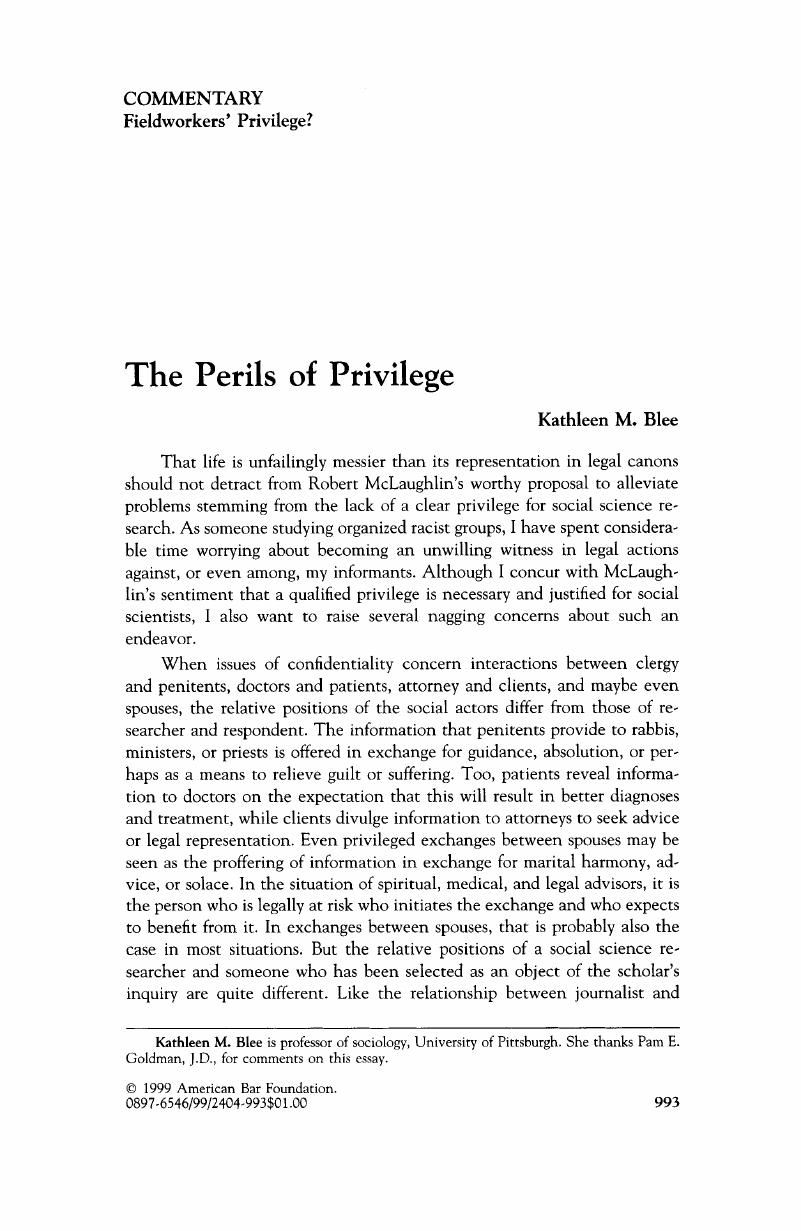Crossref Citations
This article has been cited by the following publications. This list is generated based on data provided by Crossref.
Barrett-Fox, Rebecca
2011.
Anger and Compassion on the Picket Line: Ethnography and Emotion in the Study of Westboro Baptist Church.
Journal of Hate Studies,
Vol. 9,
Issue. 1,
p.
11.
Uldam, Julie
and
McCurdy, Patrick
2013.
Studying Social Movements: Challenges and Opportunities for Participant Observation.
Sociology Compass,
Vol. 7,
Issue. 11,
p.
941.



